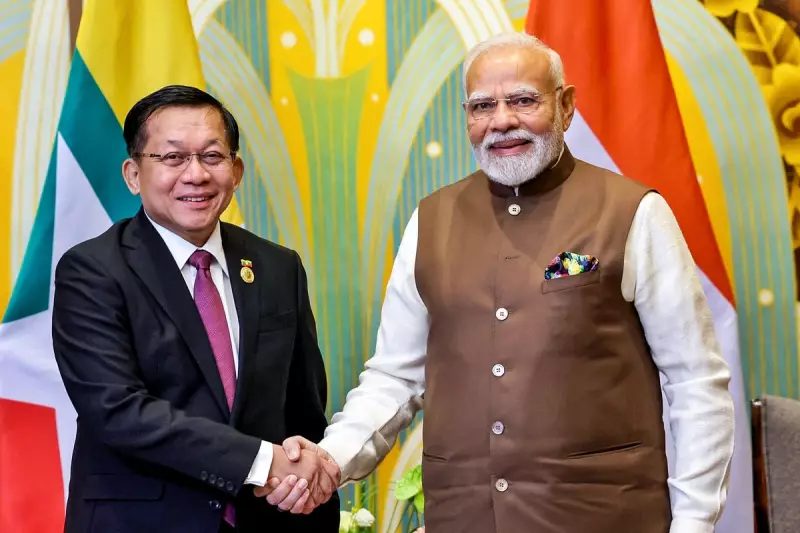
Myanmar's military leader, General Min Aung Hlaing, has cut a isolated figure at a major security summit in India this week, his presence underscoring both his regime's pariah status and the complex geopolitical calculations of host nation China.
The General, who seized power in a bloody February 2021 coup, attended the Shanghai Cooperation Organisation (SCO) meeting as a 'guest of the presidency'. However, his participation was marked by conspicuous slights and limited engagement, reflecting the delicate dance Beijing must perform in its backing of the junta.
A Summit of Snubs and Symbolism
Analysis of the summit's proceedings reveals a carefully choreographed diplomatic cold shoulder. Unlike other leaders, General Min Aung Hlaing was not featured in the official 'family photo' with SCO heads of state. His speaking slot was conspicuously relegated to a session specifically for observer states, far from the main event.
This treatment stands in stark contrast to the warm reception historically afforded to Myanmar's democratically elected leaders. The move is widely interpreted as a signal from China and India, both SCO members, of their cautious and pragmatic approach to the junta—engaging enough to protect strategic interests but distanced enough to avoid full endorsement.
China's Cautious Calculus
Beijing's relationship with Naypyidaw is a masterclass in realpolitik. China is arguably the junta's most powerful international backer, a crucial source of economic lifelines, arms, and diplomatic cover at the United Nations. Yet, the optics at the SCO summit suggest even Beijing is wary of tying its fortunes too closely to the embattled general.
This balancing act is driven by several factors. China has significant infrastructure and energy investments in Myanmar under its Belt and Road Initiative that it seeks to protect. Furthermore, it views stability on its border as a paramount concern. However, overtly embracing a leader shunned by the West and condemned for brutal human rights abuses carries its own reputational and strategic risks.
The Broader Geopolitical Stage
The SCO meeting itself was a tableau of alternative alliances. The attendance of leaders like Russia's Vladimir Putin and Iran's Ebrahim Raisi highlighted a gathering of nations increasingly at odds with Western foreign policy objectives. For General Min Aung Hlaing, participation was a rare opportunity to project an image of international legitimacy on a multilateral stage, however minor his role.
Yet, his isolation within the forum confirms that his regime remains a toxic proposition, even amongst partners who themselves face Western sanctions. His quest for formal SCO membership for Myanmar appears to be a distant prospect, thwarted by the ongoing civil war and widespread opposition to his rule within the country.
As Western sanctions continue to bite and domestic resistance intensifies, the junta's reliance on a handful of powerful patrons like China and Russia will only deepen. The SCO summit did little to suggest that this support will translate into the full-throated international acceptance the general so desperately craves.





